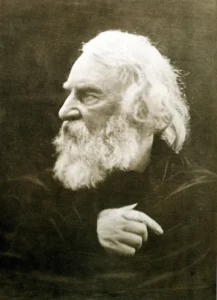 If both sides fighting a war can agree on a temporary cease-fire, why can’t they agree on a permanent one?
If both sides fighting a war can agree on a temporary cease-fire, why can’t they agree on a permanent one?
It’s a question as old as time. And a question that, thus far, has never been answered. The tense temporary truce that began in Gaza on November 24, a truce that allowed for an exchange of Palestinian prisoners held by Israel for hostages held by Hamas, didn’t hold. Bombs and bullets are, once again, the order of the day. Peace is but a pipedream.
Whenever I come across the term “cease-fire,” I think of a scene from the wonderful Civil War novel “The Black Flower” by Howard Bahr. I couldn’t hunt for the scene in my own book because, sadly and mysteriously, the book has gone missing. But I managed to borrow a copy from a friend and find what I was looking for. In Georgia in the summer of 1864, following the Battle of Kennesaw Mountain, the battlefield was covered with the bodies of so many dead and rotting-in-the-sun soldiers that a truce was declared so they could be buried. Side by side, Union soldiers and Confederate soldiers undertook the brutal and heartbreaking task, sharing shovels and picks and canteens of sweet spring water. And when the gruesome work was finished, the weary soldiers returned to their own camps to prepare once more to fight and kill each other.
Scenes such as this inspired American poet Henry Wadsworth Longfellow to write one of the most moving Christmas carols of all times. Longfellow’s 18-year-old son Charles, a soldier in the Union Army, was gravely wounded in a skirmish in Virginia in November 1863. On Christmas Day, Longfellow penned these words of gloom:
I heard the bells on Christmas Day
Their old familiar carols play
And mild and sweet their songs repeat
Of peace on earth, good will to men
And in despair I bowed my head
“There is no peace on Earth,” I said
For hate is strong and mocks the song
Of peace on Earth, good will to men
Fast forward to 1914, when one of the most famous truces in history happened on Christmas Eve, just a few months after the conflict that would later come to be known as World War I began. In several locations along the hundreds of miles that comprised the Western Front, Allied and German soldiers left their dank, muddy trenches and came together in No Man’s Land to shake hands, sing carols and share cigarettes and wine. Some played cards. Some played soccer. One soldier wrote this account in his diary: “Here we were, laughing and chatting with men whom only a few hours earlier we were trying to kill!!!” No one knows for sure how many soldiers participated in this unplanned and unauthorized truce, but historians estimate that number to be close to 100,000.
The fighting, of course, soon resumed and would continue until November 11, 1918. “The Great War” would eventually claim 15 million lives.
More than a century later, all over the globe, war goes on. It’s enough to make you bow your head in despair. But that’s not what Henry Wadsworth Longfellow did back on December 25, 1863. Instead, he wrote an additional verse to “I Heard the Bells on Christmas Day.” Here are the words:
Then rang the bells more loud and deep
God is not dead nor does he sleep
The wrong shall fail, the right prevail
With peace on Earth, good will to men
May people of peace work to make it so, at Christmas and always.
(December 9, 2023)